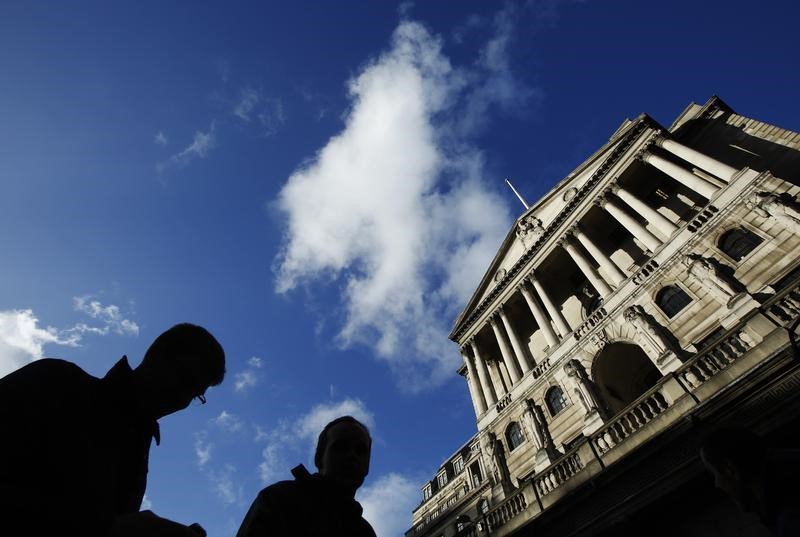LONDON (Reuters) - The number of Britons who expect the Bank of England to raise its record-low interest rates over the next 12 months has fallen sharply to its lowest in more than two years, a survey of households showed on Wednesday.
Financial data company Markit said 46 percent of households expected the BoE to raise rates before February 2017, down from 71 percent in November. The number expecting a move in the next six months sank to just 22 percent from 40 percent in January. Both figures were the lowest since October 2013.
The change in household expectations comes as inflation remains stubbornly low, and financial markets have pushed back their bets on a first increase in rates to beyond 2018 following a slump in global share prices.
Last month BoE Governor Mark Carney said he wanted to see economic growth back above average, wages growing faster and underlying inflation nearer 2 percent before raising rates.
"With policymakers facing low inflation, falling commodity prices and global growth worries, less than half of UK households predict an interest rate rise over the coming year," Markit economist Philip Leake said.
The BoE has kept interest rates at a record low since March 2009, and many economists had expected a rise by the middle of the year until a renewed slump in oil prices and a slide in shares at the deepened concern about the world economy.
British consumer demand has remained robust, buoyed by record employment levels and rising real wages, and Markit's Household Finance Index suggests this is likely to continue.
Households reported that their financial situation was the least squeezed since May 2015, bolstered by limited rises in the cost of living, higher take-home pay and little increase in the cost of living. Concerns about job security persisted, however.

The results are based on a survey of 1,500 Britons aged 18-64 conducted online by polling company Ipsos MORI between Feb. 10 and Feb. 14.